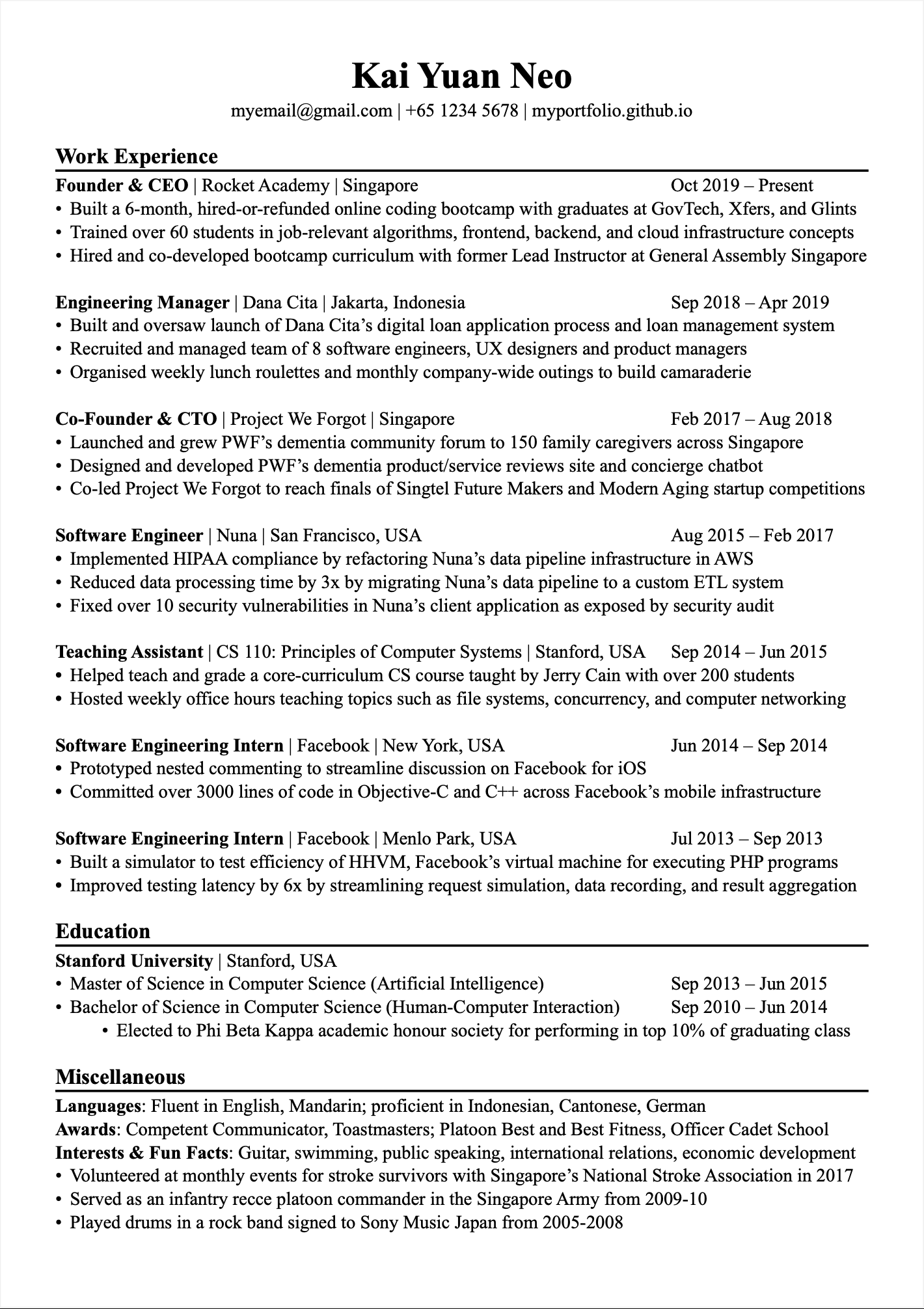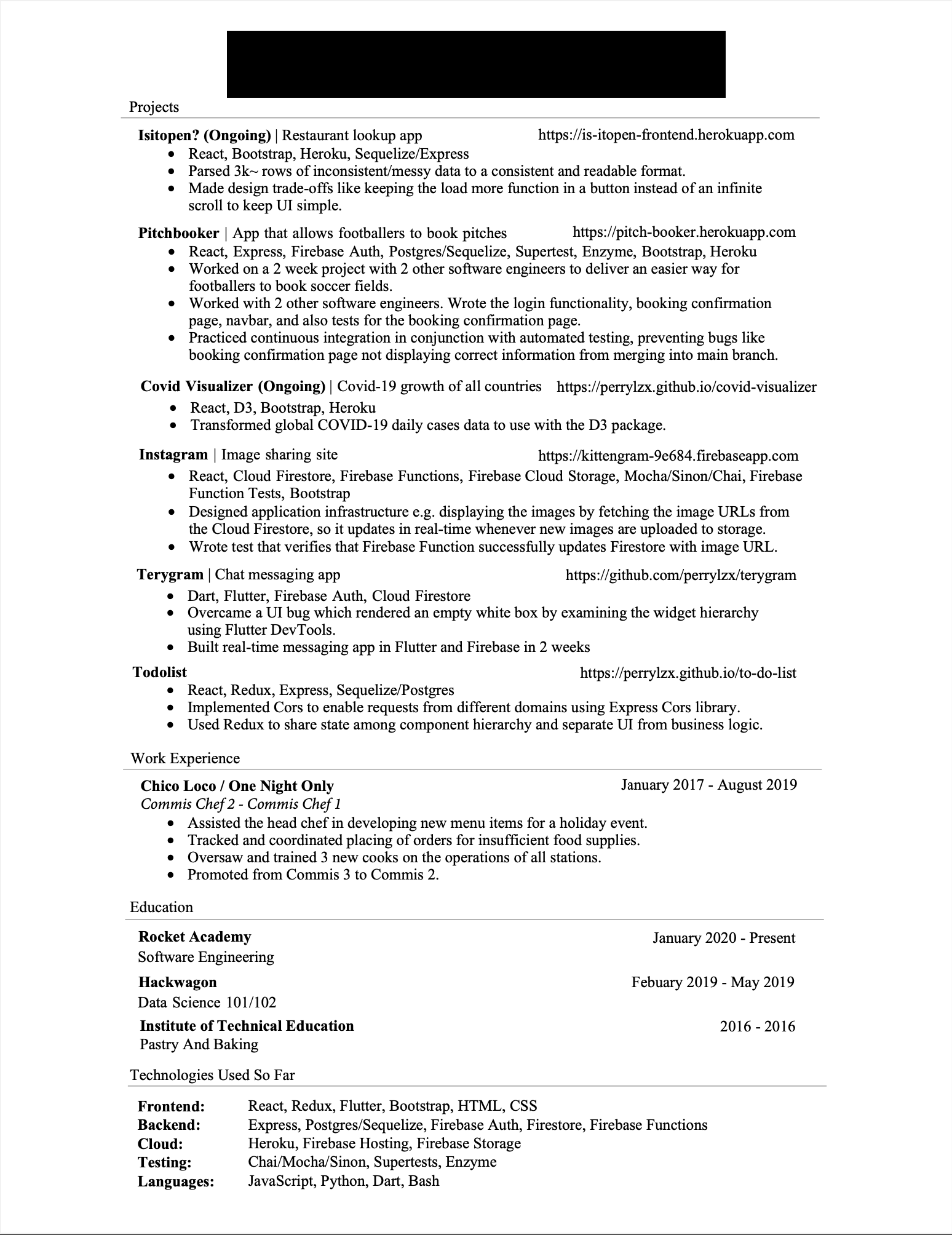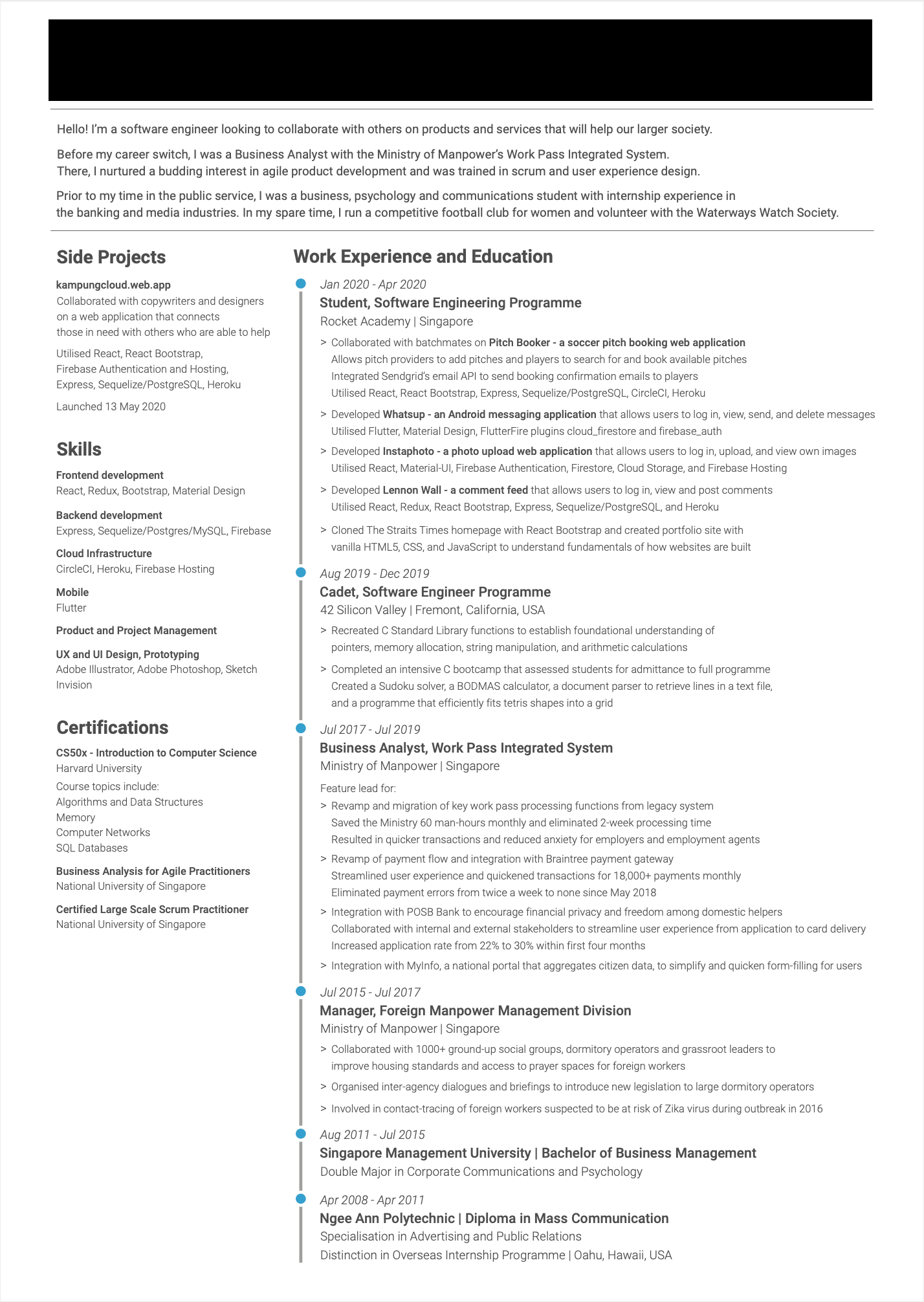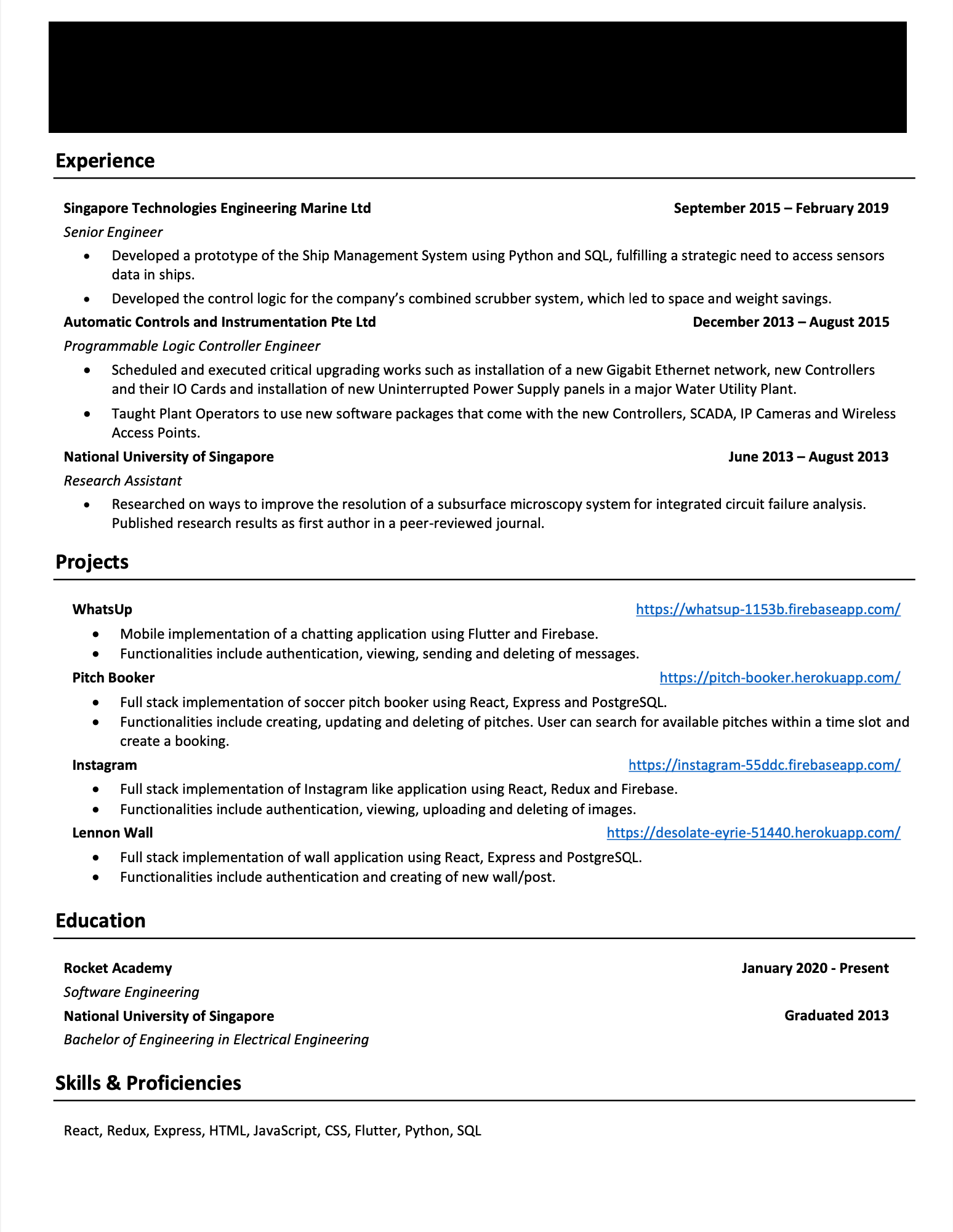IP.2: Resume
Introduction
Your resume is your first impression, and will be 1 of potentially hundreds of resumes a recruiter screens per day. Within 5 seconds the recruiter will use signals such as formatting, coding experience, work and education history, and English proficiency to decide to discard or read further. If they choose to read further, they may spend 1 minute on your resume validating whether you can code and whether you are a culture fit. If you pass, they will likely send you a technical screening test, or less commonly forward you directly to engineers for interviews.
How to Construct Resume
3 Points
Think of the 3 or fewer most important points you wish to communicate with the recruiter, and make sure those points stand out on your resume. Recruiters will not remember more than 3 points about you. For Coding Bootcamp graduates, these points are typically:
I can code
I am smart
I am a culture fit
How you communicate these points will vary from person to person, but there is a general pattern for Coding Bootcamp grads. If you're not sure if your resume communicates your points, ask family or friends to review for 10 seconds and see what they grasp.
Point #1: I Can Code
Bootcamp grads with minimal prior coding experience communicate Point #1 via projects. The first half of your resume should articulate your most impressive projects in decreasing order of impressiveness. This should be more than a list of technologies, because anyone can list technologies. Strive to express what you personally did for each project and how you accomplished it with the given technologies.
Point #2: I am Smart
Smartness is subjective. Employers are looking for signals that you can learn what you don't know and succeed at the job. Fortunately, the fact that you completed Rocket's Coding Bootcamp should already demonstrate this. Below are some common indicators of "smartness".
Well-known companies or schools
If you previously worked at a well-known company or school, employers will assume that you had to be "smart" to get a job there, thus will consider you "smart".
English fluency
If you can articulate your experiences effectively through your resume, this is a signal that you will communicate effectively (hence succeed) on the job. If you articulate poorly, you will likely not succeed on the job.
Point #3: I am a Culture Fit
Employers want people that their teammates will like. Likability is subjective, but generally people are attracted to others with independent interests. This is a proxy for charisma, and people love charisma. Someone that is a football enthusiast, volunteer teacher, or food blogger will appear more charismatic, fun, and appealing than someone with the same resume but without interests.
The "Miscellaneous" or "Interests" section typically goes at the bottom of one's resume after the more career-oriented points. Note that these are not necessarily achievements, though it will help to share achievements in your interests here if any.
How to Write Effective Bullets
Effective resumes communicate in bullet points, not prose. The goal is to help a recruiter grasp the points on your resume as efficiently as possible, to cumulatively communicate the 3 points above.
Examples:
Built a full-stack group-buy web app that enables transactions upon purchase quantity threshold.
Architected data flows across front and back-end through React state, HTTP requests, and Postgres.
Increased app reliability by writing tests for all API endpoints, run automatically on code merges.
Guidance:
Start with a verb in past tense that communicates an accomplishment, for example "built", "secured", "developed", "increased", "integrated". Avoid verbs that communicate action but not results, for example "learned", "read documentation", "watched videos", "tried", "practised". Focus on the wow, then the how.
Use the verb to communicate the impact of our action. For Rocket projects we may not have impressive user numbers or percentage improvement, but we can still communicate impact. For example, "developed X app that helps Y people do Z", or "built X feature by doing A, B, and C". Try to be specific where possible, and when in doubt, ask your self "so what?" about your bullet.
Last but not least, communicate how you achieved the impact. This is ideally concise and precise, such that the recruiter has enough details to know you're serious, but isn't caught in a rabbit hole trying to understand what you are saying. For example, "integrated real-time chat by setting up Firebase DB and syncing listing IDs with Postgres" can be simple and understandable, whereas "integrated real-time chat using Firebase Realtime Database where chat group IDs are listing IDs that are also primary keys in Postgres" may be overly technical and verbose.
Sample Resumes
Kai's Resume

Past Students' Resumes


